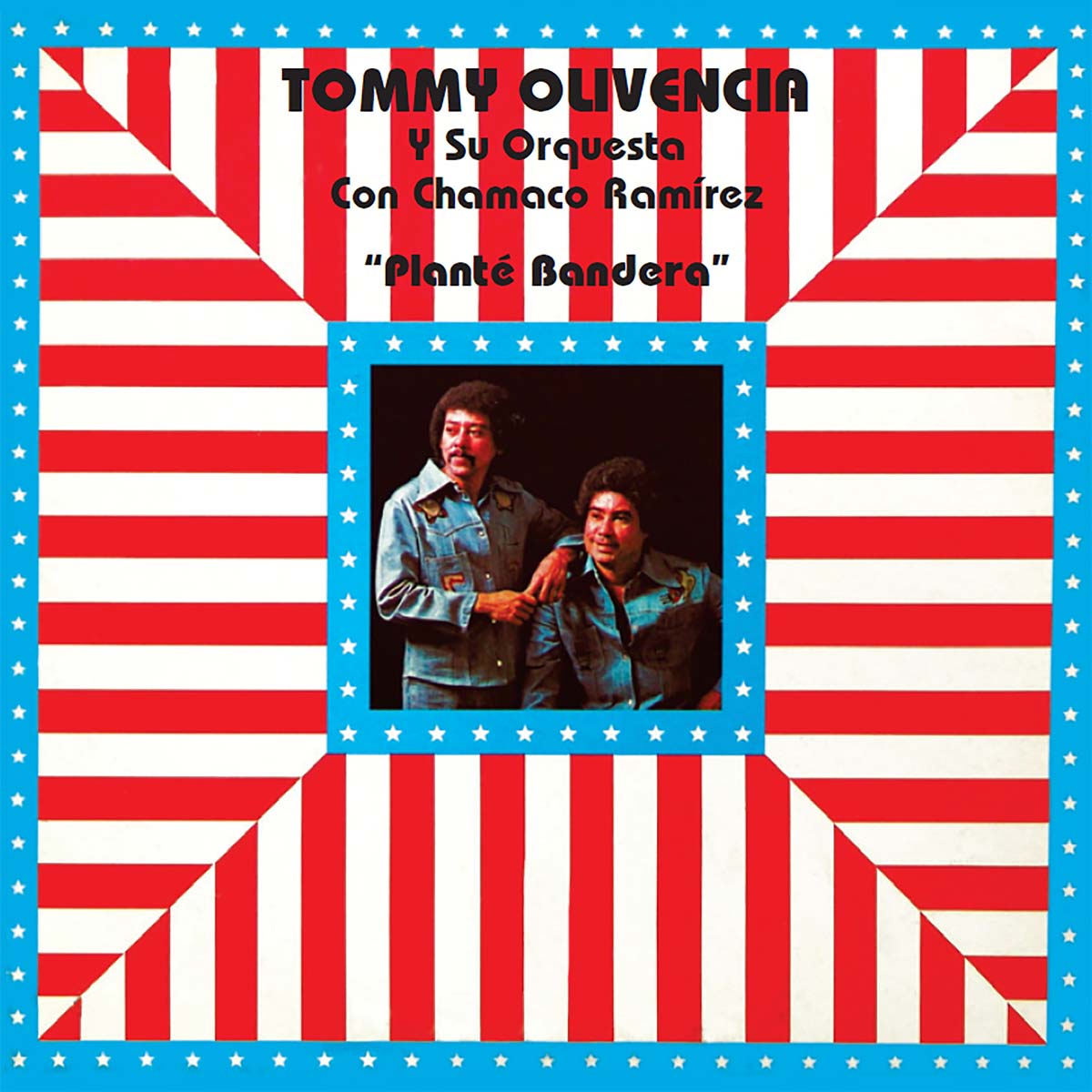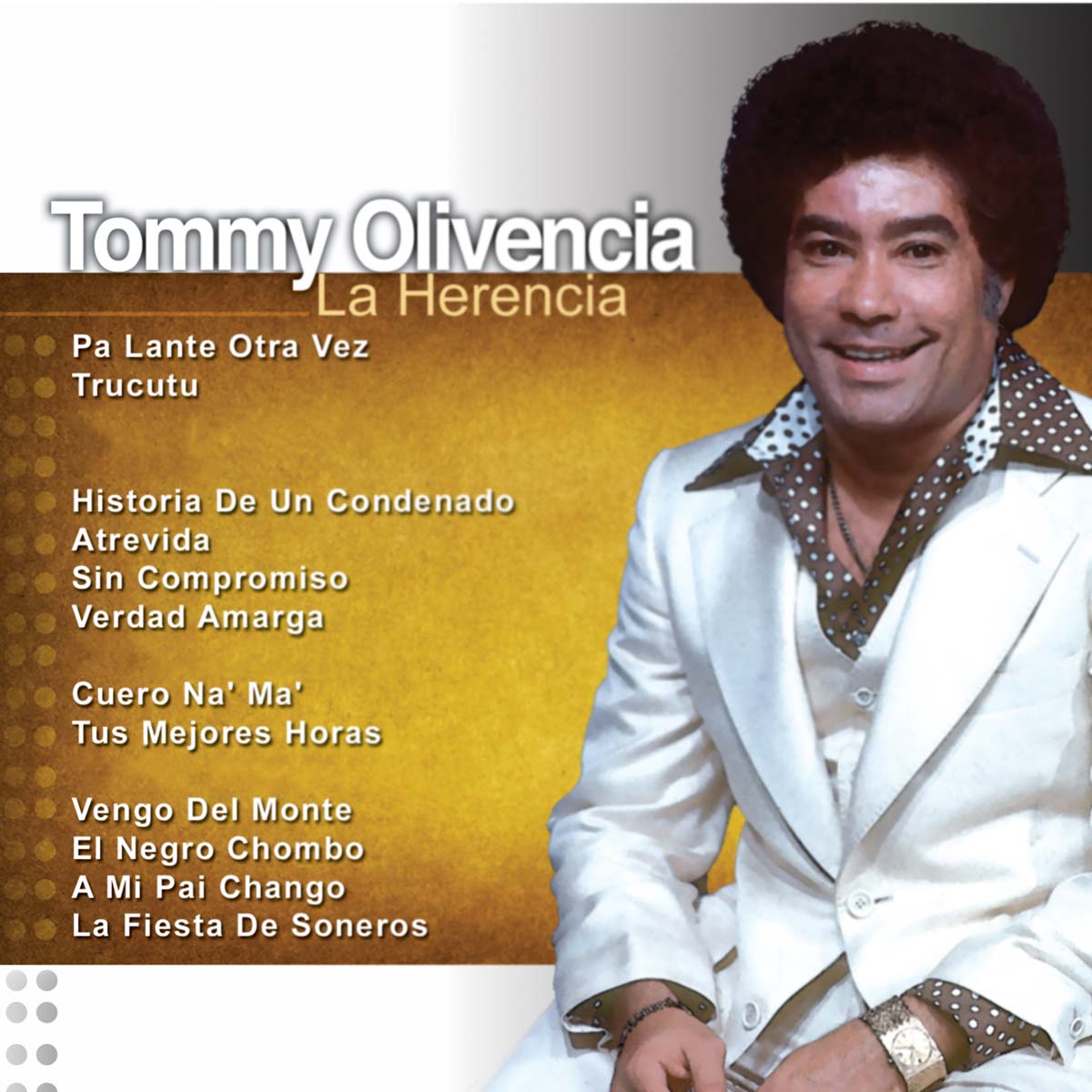
An incubator band for some of salsa’s greatest singers, Fania producer and trumpeter Luís Perico Ortiz brought Tommy Olivencia and his musicians from Puerto Rico to New York to record this blockbuster. Boasting several chart-breaking hits like “Planté Bandera”, “Casimira”, “Si Estas Herido”, “Evelio y La Rumba”, “A Mi Pai Chango”, and the now classic standard “Trucutu” penned by Olivencia’s hot singer Chamaco Ramirez, this recording was Chamaco’s last with Olivencia before his 1979 release Alive and Kicking prefaced his untimely death.
Interestingly, that last recording was produced and arranged by Javier Vasquez, longtime Ismael Rivera collaborator with material intended for El Sonero Mayor before passing it on to Ramirez. Crisp, complex and soaring trumpet solos mark many of the tunes distinguished by sharp arrangements wrapped around a big band production style favored by Ortiz. Many of these were written by Ortiz along with José Febles, Louie Cruz, Máximo Torres and Dominican trumpeter Cabrerita, who arranged the tasty merengue, “A la Yumbae”. As with most dance bands of the 1970s, ballads were included to give dancers some breathing room leaving lovers (and suitors) on the dance floor. On this recording, Olivencia leaves the romantic crooning to José Pepe Sanchez who starts off “Como Novela De Amor”, leaving the final soneos (improvisations) to Chamaco’s clear, strong yet somewhat nasally tenor while “El Amor” covertly includes a bossa nova feel lending to its amorous appeal. Another distinction has most of the tunes, except for two, written by Puerto Rico’s prolific Tite Curet Alonso whom trumpeter/bandleader Olivencia would seek out for his original material.
Alonso probably had some say in this production as well. David Cortijito’s unusual tumbao (drumming patterns) during the call and response of the choruses also mark its territory underscoring the recording’s significance of branding by flag. ”Planté Bandera” in particular stands out as a life-affirming, self-empowering ode to coming of age confidence as sung by Chamaco. His phrase, al hecho pecho tambien yo tengo derecho (what’s done is done, I also have a right {to the spotlight}), quickly becomes the vernacular for upcoming street warriors. The street theme of champions continues in “Si Estas Herido” where Chamaco advises young men not to cry about their problems, but like the lion fight back when attacked. ”Evelio Y La Rumba” is punctuated throughout with the tangy bongo beats of José Papi Fuentes escalating into a rumba descarga highlighted by the mozambique bell patterns of timablero, Julito Morales. A bomba to the orishas (gods), “” Mi Pai Chango” is arranged in big band style by Ortiz, featuring three trumpets and two trombones accompanying the thunderously driving bomba beat. Chamaco comes through with flying white and red colors, symbolizing the deity of thunder, lightning and carousing. So much for those who say that bomba is not linked to spiritualism; this bomba bursts with so much spirit, strength and dance-filled fun it might bring down more than just a house. Completing this recording is Chamaco’s signature “Trucutu”, a tune he recorded with Olivencia in the late 1960s.
A literal shout out to all the truqueros-–con artists—who circle like vultures around poor communities, “Trucutu” not only showcases Chamaco’s composing skills but his vocal dexterity (maña), phrasing, stamina and overall street cred and class. ¡A GoZalsa!
Credits: Rafael Rodríguez – Trombone Victor Candelario – Trombone Ismael Rodríguez – Trumpet Luís Ortiz – Trumpet Hector Zarzuela – Trumpet Tommy Olivencia – Trumpet Frank Revilla – Piano Jaime Ramirez – Bass David Cortijito – Conga Julito Morales – Timbal José “Papi” Fuentes – Bongo Lead Vocal – Chamaco Ramirez Vocals – José “Pepe” Sanchez Chorus – Adalberto Santiago, Hector Lavoe, Yayo El Indio Producer – Luís “Perico” Ortiz Director – Tommy Olivencia Recorded at – Good Vibrations Sound Studios, New York City Engineer – Jon Fausty Arrangements – Luís “Perico” Ortiz (“Planté Bandera”, “Como Novela De Amor”, “Evelio Y La Rumba”, “A Mi Pai Changó”,”Trucutú”); Louis Cruz (“Casimira”); Cabrerita (“A La Yumbae”); Jose Febles (“Si Estas Herido”); Máximo Torres (“El Amor”) Special thanks to C. Curet Alonso
Written by Aurora Flores



